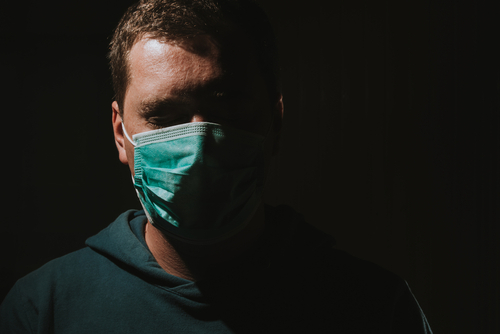The 2019 novel coronavirus (SARS-CoV-2), also known as COVID-19, is a new disease that has not previously been seen in humans. Clinical Microbiology and Infection (CMI) asserts that COVID-19 “is associated with a respiratory illness that may lead to severe pneumonia, and acute respiratory distress syndrome (ARDS).” The fact that the method of transmission, severity of symptoms, and long-term affects of coronavirus-19 were largely unknown not only caused worldwide panic and but also initiated the surge of a global pandemic. In efforts to slow the spread of the virus, states all across America instituted social distancing guidelines, implemented sporadic stay-at-home orders for all non-essential workers, prohibited in-restaurant dining, closed schools, theaters, exercise studios, museums, public libraries, and more. Many hospitals around the country prohibited individuals that were not there for treatment from entering the building (e.g. loved ones of patients). Further, due to its highly contagious nature a strict no visitor’s policy was established both in healthcare settings (e.g. designated COVID-19 unites) as well as in the general public (e.g. mandatory quarantine for a minimum of 14 days) for those that tested positive for the virus. Sadly, this too meant that for individuals who became terminal from COVID-19 they would be unable to be in the company of loved ones in their last living moments.
Mental Health Impact
Nearly every person in America has experienced the impact of the COVID-19 pandemic. Even in rare situations where an individual does not have a direct connection to someone who has contracted COVID-19, the pandemic could still negatively affect their mental wellbeing. For example, extroverted individuals that thrive on social interaction were required to adhere to the stay-at-home orders and social distance mandates for extended periods of time, which surely affected their mental state. Some individuals lost family members and/ or loved one’s to COVID-19 and were unable to visit with them, see them or be by their side as they passed, which could gravely imprint an individual’s psyche. Depending on the individual, when contracted, the physical toll the virus can take on an individual can be immense, and the recovery process from COVID-19 can leave an individual vulnerable to lingering adverse effects. Having to deal with newfound, seemingly long-term physical complications can contribute to one’s mental state, and could ignite any dormant mental health ailment. The fear surrounding the unknown was palpable, not only in the United States, but all over the world. There is an endless list of all of the known ways COVID-19 impacted society: individuals developed thorough/ obsessive cleaning rituals to avoid unnecessarily contracting the virus, people spent months on end inside their homes, people stopped obtaining medical services for pre-existing conditions for fear of contracting the virus, and many, many more. Every individual living through these unprecedented times is bound to experience a slew of emotions, some of which may be difficult to navigate as they are directly related to unparalleled times. There are countless layers of how COVID-19 could impact an individual’s mental health. Much like many of the long-term effects of contracting the virus itself remain unknown, the long-term mental health effects of living through this pandemic are unknown yet are sure to be both extensive and profound.
Disclaimer:
The information above is provided for the use of informational purposes only. The above content is not to be substituted for professional advice, diagnosis, or treatment, as in no way is it intended as an attempt to practice medicine, give specific medical advice, including, without limitation, advice concerning the topic of mental health. As such, please do not use any material provided above as a means to disregard professional advice or delay seeking treatment.




